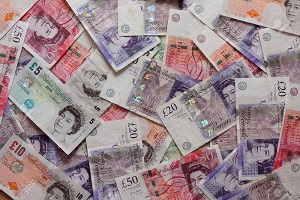Sterling hovered near a one-week high on Tuesday as Britain’s parliament prepared for a debate on Prime Minister Theresa May’s Brexit withdrawal agreement ahead of next week’s vote.
The run-up to the vote is likely to dominate trading of the British currency, with May set to lose the vote unless she can convince opponents within and outside her party to back her deal.
Sterling’s relative strength in recent days is mostly down to dollar weakness – the pound’s performance against the euro has been more muted.
The Telegraph newspaper, citing unidentified sources, reported that British and European officials were discussing the possibility of extending the formal exit process from the European Union amid fears a Brexit deal will not be approved by March 29.
British Brexit minister Stephen Barclay denied the report and said the government was committed to leaving the EU on March 29.
Sterling was little changed, with analysts saying that more concrete developments were needed to spark a serious rally in the pound.
“GBP/USD can bounce fiercely if only there’s some good news,” said Kit Juckes, currencies strategist at Societe Generale.
“Under these circumstances it is clearly impossible to make reliable GBP forecasts. Anything from an endlessly drawn-out Brexit to an amicable agreement or a hard Brexit, everything remains within the realms of possibility, so that the outlook for sterling also ranges from a recovery rally to currency crisis.”
The pound traded as high as $1.2797 on Tuesday before edging down to $1.2780, barely positive on the day.
Against the euro the pound rose 0.2 percent to 89.67 pence per euro.
Despite heightened volatility, the pound has remained stuck in a range against both the dollar and euro, with traders reluctant to push the currency too far one way or the other until there is greater clarity about Brexit.
Analysts at Nomura have polled their clients about May’s parliamentary vote. The most likely outcome, they said, was for a second vote to take place on the same deal.
Should parliament approve the deal, ensuring Britain avoids a dysfunctional exit from the EU in March, the pound would rise 5 percent against the dollar. If the deal is voted down, the pound would lose 2 percent of its value, Nomura said.











